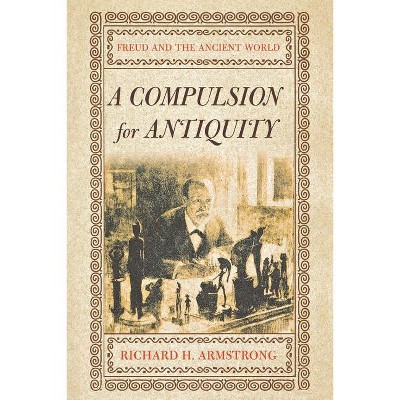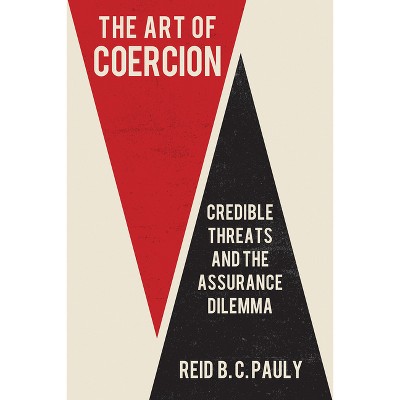Sponsored

Under the Strain of Color - (Cornell Studies in the History of Psychiatry) by Gabriel N Mendes (Hardcover)
In Stock
Sponsored
About this item
Highlights
- In Under the Strain of Color, Gabriel N. Mendes recaptures the history of Harlem's Lafargue Mental Hygiene Clinic, a New York City institution that embodied new ways of thinking about mental health, race, and the substance of citizenship.
- About the Author: Gabriel N. Mendes is Assistant Professor of Ethnic Studies and of Urban Studies and Planning at the University of California, San Diego.
- 208 Pages
- Medical, Psychiatry
- Series Name: Cornell Studies in the History of Psychiatry
Description
About the Book
Recapturing the history of a largely forgotten New York City institution that embodied new ways of thinking about mental health, race, and the substance of citizenship. Harlem's Lafargue Mental Hygiene Clinic was founded in 1946.
Book Synopsis
In Under the Strain of Color, Gabriel N. Mendes recaptures the history of Harlem's Lafargue Mental Hygiene Clinic, a New York City institution that embodied new ways of thinking about mental health, race, and the substance of citizenship.
The result of a collaboration among the psychiatrist and social critic Dr. Fredric Wertham, the writer Richard Wright, and the clergyman Rev. Shelton Hale Bishop, the clinic emerged in the context of a widespread American concern with the mental health of its citizens. Mendes shows the clinic to have been simultaneously a scientific and political gambit, challenging both a racist mental health care system and supposedly color-blind psychiatrists who failed to consider the consequences of oppression in their assessment and treatment of African American patients. Employing the methods of oral history, archival research, textual analysis, and critical race philosophy, Under the Strain of Color contributes to a growing body of scholarship that highlights the interlocking relationships among biomedicine, institutional racism, structural violence, and community health activism.
Review Quotes
Under the Strain of Color is a much-needed addition to the historiography of race and psychiatry in the USA. This is the only book-length treatment of the history of the Lafargue Mental Hygiene Clinic, the first outpatient psychiatric clinic to serve the most iconic of African American communities: New York's Harlem. Under the Strain of Color comprehensively addresses two of the less-well understood aspects of the fascinating Lafargue Clinic story: its origin and its contribution to the civil rights movement. In doing so, Mendes has artfully crafted what should become the standard account of this remarkable, short-lived, Cold War-era medical institution. A slim volume that is jargon-free and as entertaining as a novel, I can see it wideningthe audience for both medical humanities and the history of psychiatry.
-- "History of Psychiatry"[An] admirable contribution to the history of American health, revealing how the intersecting efforts of activists, practitioners, and cultural figures helped make New York City's health institutions more responsive to diverse patient groups in the face of political inertia and social resistance.
-- "American Historical Review"Professor Mendes' narrative has serious contemporary analogues. It is a cautonary tale about how and why minority communities fail to gain assistance for their needs asthey define them... One comes away from this book feeling admiration for the efforts of all those who both brought the Lafargue Clinic into being and sustained it through its 12 years of active service. If we are wise, we will learn from their example.
-- "J Relig Health"Under the Strain of Color is a significant contribution to the study of antiracism in the human sciences and a compelling counterpoint to the historiography of the "psy" disciplines after WWII... Mendes' illuminating study of the neglected Lafargue clinic effectively points to more radical alternatives from this period... Mendes' book offers a convincing case for the rewards of studying the history of human science from the margins.
-- "Journal of the History of Behavioral Sciences"Wertham's work at Lafargue led to his pronouncement that 'racism was not exclusively a social and political problem but represented a community health problem.' This well-researched, easy to read text is compelling, providing a comprehensible overview of the relationship between racism and the psychiatric profession in the midcentury US.
-- "Choice"About the Author
Gabriel N. Mendes is Assistant Professor of Ethnic Studies and of Urban Studies and Planning at the University of California, San Diego.











